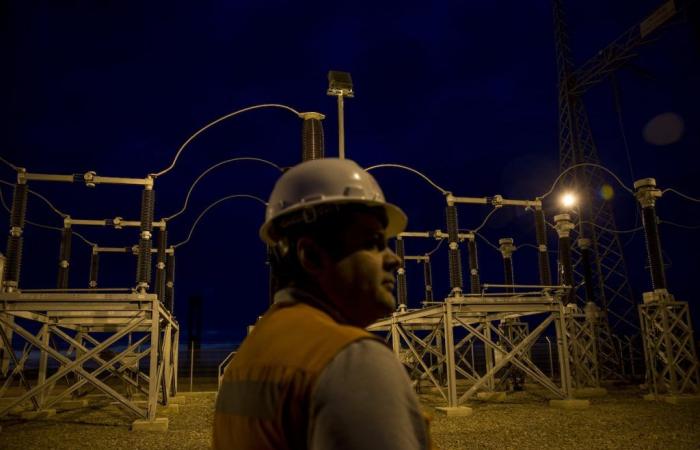One of the great gifts of the person who was president of the Chilean industrialists in the late 90s and early 2000s, Felipe Lamarca, was to coin memorable phrases with great background. “When the street rules, the country disbands” and “Chile is not going to change, as long as the elites do not let go,” are notable pearls, but perhaps the one that takes the gold medal is that of “the rush passes, the shits remain”, which had so many repercussions that in 2009 it was the title of a book by Lamarca himself that achieved notable sales.
It is impossible not to bring up this statement by Lamarca on the occasion of the debate regarding the readjustment of electricity rates frozen on two occasions in recent years. The haste with which the political class “evacuated” laws to freeze electricity prices (the first ones were more excusable, given the context that existed in November 2019) are today an itch that has that world very upset, alarmed by the electoral effects of the necessary ad-porta price correction of the municipal companies.
The meetings do not stop happening and with absolute lack of modesty and avoiding the substance of the issue, many parliamentarians are looking at the Treasury to see if some resources come out of the already tight pockets of the State to cushion what is feared will be an electoral political cost. . The request for additional subsidies was quite clear from Minister Mario Marcel: “if today there are no resources to finance an increase in the PGU [Pensión Garantizada Universal]”If there are no resources to finance nurseries from the State, if there are no resources to finance a more aggressive reduction of waiting lists in hospitals, there would hardly be resources to expand the electricity subsidy.”
These new rushes, after the decisions taken in the past generated a debt with the electrical companies that exceeds US$ 6,000 million and that grows at a rate of US$ 3 million per day, although today they decant in a debate around subsidies, that does not clear up a bad aftertaste about how the way of doing politics can affect the economy as a whole (achievement of the inflation goal) and the decision-making of economic agents, particularly in the field of investments.
When, knowing the catastrophic effects that withdrawals from pension funds had for the country, they are raised again, even if only as a form of pressure to speed up the pension reform; When the underlying issues such as the implicit price distortion generated and the uncertainty about the stability of the rules of the game for investors are omitted in the entire debate on electricity rates, no steps are being taken in the direction of establishing the recovery of electricity. economy on the solid foundations of the deployment of new investment projects by the private sector and the consequent creation of new “formal” jobs, which are those that allow people to live with certainty and generate safeguards for present contingencies. and future.
The ease with which the debate of the political class is consumed by nonsense and bombastic declarations, and loses sight of the fact that the decisions of economic agents are rational and are due to the necessary care that their administrations must have towards the contributors of capital (shareholders and lenders) who finance the projects, is eloquent.
In recent days, there has been a debate that deals with these issues. The president of CMPC, Luis Felipe Gazitúa, said at a regional business meeting that in his opinion “there is one thing that one perceives in other Latin American countries that have a level of development that is similar to ours (…) there is a conviction among public authorities that private industry is a factor of development. That has been lost in Chile.”
The comment by the president of the Papelera puts the finger on the sore spot, while highlighting a well-known problem; namely, the endless bureaucracy that investment projects face (“no one in their right mind is going to start an investment of about US$4 billion when the project could take 14 years,” said Gazitúa). Minister Marcel’s response, however, did not measure up to the circumstances, something unusual for him, by throwing the ball out of the court and raising the episode of collusion of the tissue which detonated a decade ago.
Investments do not behave stupidly and are not insensitive to thousands of situations that affect them. Public safety, which has been a determining factor in investments in the forestry sector, the so-called “permissibility”, the business environment as a whole, are all “objective” and not political variables that influence the decision-making, otherwise legitimate, of companies. Even issues of competitive market dynamics, as in the case of Liberty Media’s recent decision to dilute itself in Claro/VTR, are a sufficient condition to explain the behavior of investments.
As VTR parent CEO Balan Nair said when detailing Liberty’s decision to step aside in the local telecommunications market: “Politically, Chile is one of the best countries” and “it was one of our better investments for many years,” however, “if we look at all the opportunities (and) due to some uncertainties in the future of Chile, we have decided that other markets are probably better.” Of course, add water.
Subscribe here to the EL PAÍS Chile newsletter and receive all the key information on current events in the country.


